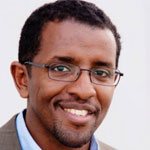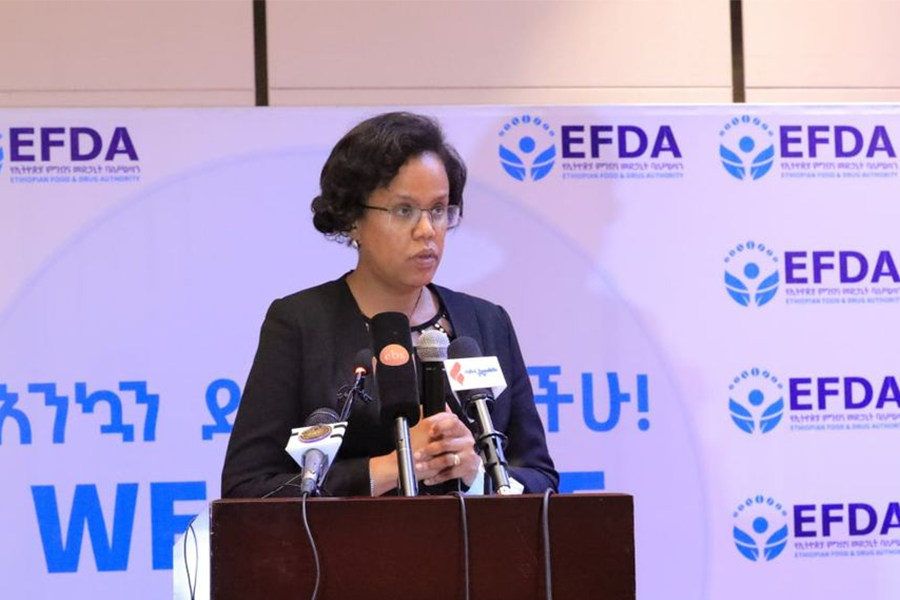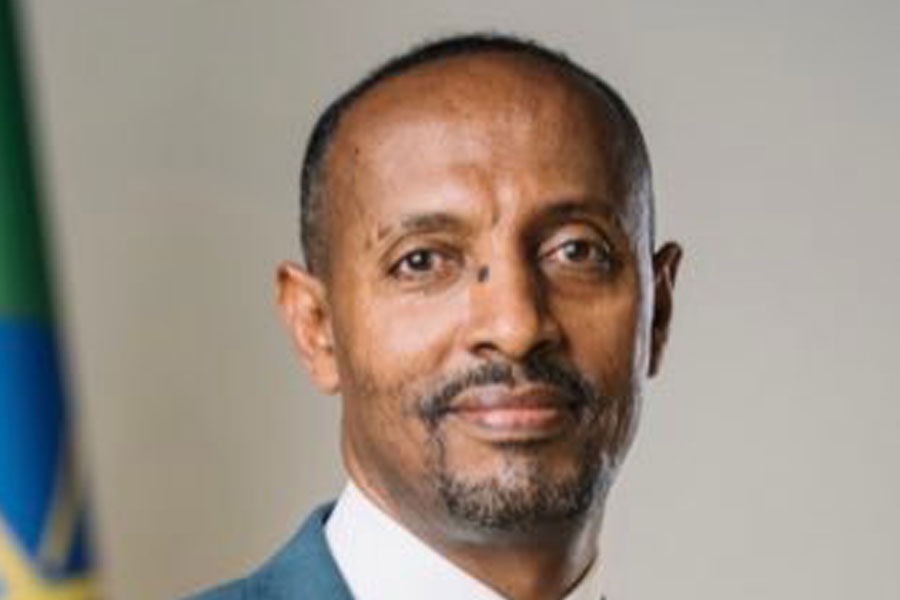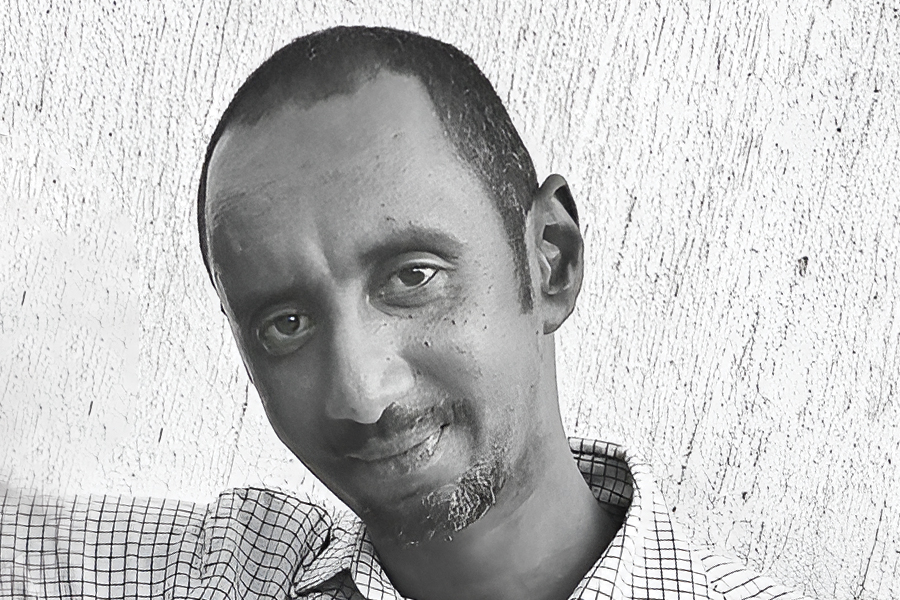
Life Matters | May 27,2023
Mar 16 , 2024
By Samuel Suraphel
Samuel Suraphel(samuel@mansacolabs.com) leads Mansa Colabs, a company that supports the growth of early-stage for-profit companies, non-profit projects and creative entrepreneurs. He works at the cross-section of technology, entrepreneurship, creativity, and positive social change.
With the potential to harness the latent energy of millions of its youth and young adults, Ethiopia's path forward is undoubtedly daunting. It must steer through an increasingly complicated world and the difficult journey towards livelihood and self-actualisation. Yet, embracing a holistic approach that values play, prayer, and purpose can create a more inclusive and dynamic framework for youth development and employment.
The strategy addresses the immediate challenges of unemployment and underemployment to lay the groundwork for an engaged and empowered generation ready to contribute to the country's growth and prosperity.
Ethiopia's economic structure is changing, marked by growth, increasing foreign investment, exposure to enhanced international trade, and an ever-growing embrace of information technology. These can create many job opportunities for the rapidly urbanising and predominantly young population. However, beneath this economic evolution lies a worrying trend about the youth's education and employment prospects.
According to official data, Ethiopia faces a significant hurdle in tackling youth unemployment and underemployment. The urban youth unemployment rate has escalated to 25.3pc, with almost a quarter of these individuals not engaged in employment, education, or training. An astonishing 49pc of those employed work without monetary compensation, primarily in subsistence agriculture, a sector in which 61pc of the workforce is women. No less than 40pc of the employed population is seeking additional working hours, reflecting a high underemployment rate.
What can be done to productively harness the vast energy and innovation of the youth and young adults?
The federal government's 10-Year Development Plan aims to address these issues. However, despite the best efforts, a significant portion of the population remains unemployed or underemployed. The solution requires various approaches that extend beyond the traditional pathway towards employment, emphasising personal growth and development through play, prayer, and purpose.
Play, in the context of youth development, is not a new concept but one that demands attention from policymakers. The benefits of play and sports for children and young adults are well-documented, ranging from social skills development to leadership and team-building. Projects such as "Sport for Development," which has led to the rehabilitation or construction of 24 sports grounds, showcase the potential of sports as a vehicle for development. In Addis Abeba, the recent opening of a sports venue in the Sar Bet area points to the promise of such initiatives.
The policy implications of leveraging play for development are significant. We must consider utilising excess space in every village to build and maintain publicly used fields, gyms, and recreational facilities. Even simple public outdoor gyms could serve as a starting point. Arts and culture play a significant role in personal development and can add value to local communities while preserving heritage.
Faith and spirituality are central in Ethiopian culture and society, with multiple traditions coexisting for centuries. These institutions provide spiritual guidance and act as centres for community and socialisation, especially for the youth. Faith-based groups, often led by young people, offer a platform for interfaith learning and collaboration, from organising choirs to developing children's programs and engaging in audio and video productions.
This should lead to crucial policy considerations.
How can we support and celebrate the rich traditions that connect individuals to their faiths while encouraging interfaith linkages among youth?
The goal would be to share commonalities among faith practices, allowing all faiths to thrive and serve as more vital spiritual bases for their members.
Pursuing purpose is inherent in human nature, whether in academic, professional, or other endeavours such as creative arts, charity, or addressing global risks like climate change. The advent of technology and social media has connected young people worldwide, enabling them to share their passions and concerns. There is a need for programs and policies that help individuals, regardless of age, to identify, nurture, and actualise their purpose to benefit themselves and the wider community.
Initiatives like the Ministry of Labour & Skills Development, alongside the UN's "Generation Unlimited", are steps in the right direction, but more comprehensive efforts are necessary.
Implementing a policy framework centred around "Play, Pray, and purpose" requires competent management and accountability at both federal and local levels.
Is it time for a Ministry of Play?
Such a ministry, along with departments focusing on faith and purpose, would coordinate efforts to support youth and adults' development. It could be structured like social impact funds, focusing on achieving outcome goals. The challenge lies in creating systems that encourage local community engagements and innovation, adopting a proactive, "How can we help?" approach.
PUBLISHED ON
Mar 16,2024 [ VOL
24 , NO
1246]


Life Matters | May 27,2023

Fortune News | Jul 13,2024

Fortune News | Mar 09,2024

Agenda | Jul 07,2024

Editorial | Aug 01,2020

Fortune News | Oct 21,2024

Fortune News | Jun 01,2019

Radar | Apr 29,2023

Radar | Sep 04,2021

Obituary | Nov 09,2024

My Opinion | 131548 Views | Aug 14,2021

My Opinion | 127903 Views | Aug 21,2021

My Opinion | 125879 Views | Sep 10,2021

My Opinion | 123510 Views | Aug 07,2021

Dec 22 , 2024 . By TIZITA SHEWAFERAW
Charged with transforming colossal state-owned enterprises into modern and competitiv...

Aug 18 , 2024 . By AKSAH ITALO
Although predictable Yonas Zerihun's job in the ride-hailing service is not immune to...

Jul 28 , 2024 . By TIZITA SHEWAFERAW
Unhabitual, perhaps too many, Samuel Gebreyohannes, 38, used to occasionally enjoy a couple of beers at breakfast. However, he recently swit...

Jul 13 , 2024 . By AKSAH ITALO
Investors who rely on tractors, trucks, and field vehicles for commuting, transporting commodities, and f...

Jun 28 , 2025
Meseret Damtie, the assertive auditor general, has never been shy about naming names...

Jun 21 , 2025
A well-worn adage says, “Budget is not destiny, but it is direction.” Examining t...

Jun 14 , 2025
Yet again, the Horn of Africa is bracing for trouble. A region already frayed by wars...

Jun 7 , 2025
Few promises shine brighter in Addis Abeba than the pledge of a roof for every family...

Jun 29 , 2025
Addis Abeba's first rains have coincided with a sweeping rise in private school tuition, prompting the city's education...

Jun 29 , 2025 . By BEZAWIT HULUAGER
Central Bank Governor Mamo Mihretu claimed a bold reconfiguration of monetary policy...

Jun 29 , 2025 . By BEZAWIT HULUAGER
The federal government is betting on a sweeping overhaul of the driver licensing regi...

Jun 29 , 2025 . By NAHOM AYELE
Gadaa Bank has listed 1.2 million shares on the Ethiopian Securities Exchange (ESX),...